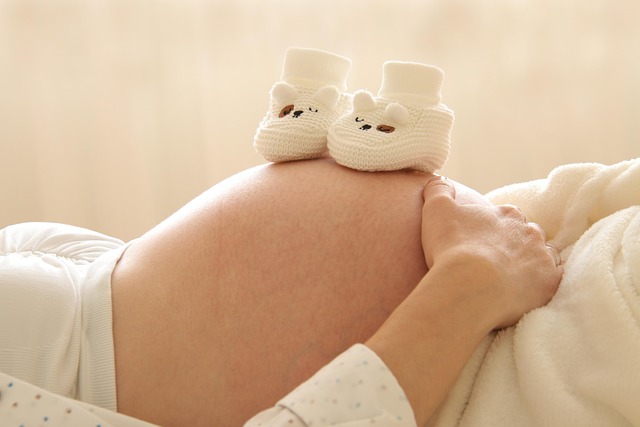If you’re dealing with ovarian issues, it’s natural to feel anxious about your chances of having children. However, premature ovarian insufficiency (POI) doesn’t mean the end of your fertility journey; in fact, it can often be just the beginning. Let’s explore your options together.
Many people anticipate facing fertility challenges and menopause later in life, but for some, these concerns arise much earlier. Approximately 3 out of every 100 women experience primary ovarian insufficiency, which can occur as early as their 20s. This condition, previously known as premature ovarian failure, can be hard to come to terms with, but it doesn’t spell the end of your hopes for parenthood.
What is Primary Ovarian Insufficiency?
In POI, the ovaries produce lower levels of estrogen and may stop releasing eggs, leading to an early or premature menopause before the age of 40. This affects fertility by causing irregular or missed periods, making it trickier to conceive. Yet, it’s important to note that around 10% of women with POI do manage to get pregnant naturally, although it may take longer than usual.
When to Consult a Fertility Specialist
It’s wise to seek help from a fertility specialist if:
- You have been diagnosed with POI and are trying to conceive.
- You’ve been attempting to get pregnant for over a year without success.
- You have family history or other conditions that raise your POI risk.
A fertility assessment can provide a comprehensive view of your reproductive health, helping you understand how POI may be affecting your fertility. Once you have this information, we can guide you through your options, including fertility preservation and IVF.
Recognizing the Symptoms of POI
The primary indicator of POI is irregular menstruation or the absence of periods. Other symptoms may include:
- Hot flashes
- Vaginal dryness or discomfort during intimacy
- Night sweats
- Sleep disturbances
- Decreased libido
- Mood fluctuations
- Memory issues
- Headaches
- Rapid heart rate
- Joint stiffness
If you’re experiencing these symptoms, it’s essential to consult a healthcare professional.
Risk Factors
Certain factors may increase the likelihood of developing POI, including:
- Age
- Smoking
- Family history of premature menopause
- Being underweight
A diagnosis typically involves considering your age, symptoms, and blood tests for hormones like FSH and estrogen.
Causes of Primary Ovarian Insufficiency
POI can be triggered by:
- Cancer treatments such as chemotherapy or surgery
- Autoimmune disorders
- Genetic or chromosomal conditions
- Rare infections like mumps or tuberculosis
In many cases, the exact cause of POI remains unknown, but this should not deter you from seeking treatment or exploring fertility options.
Treatment Options for POI
At TFP Fertility UK, we customize treatments to meet your individual needs, taking into account your current fertility status and personal preferences.
- Hormone Replacement Therapy (HRT): This therapy replenishes the estrogen your body lacks due to POI. It can come in various forms such as creams, gels, patches, or pills. HRT is beneficial as it helps mitigate symptoms and can prevent long-term health risks associated with low estrogen levels.
- Fertility Preservation: If you have POI but still possess a reasonable number of eggs, preserving your fertility gives you options for the future. This is particularly important if you are facing conditions that might lead to POI or undergoing treatments like chemotherapy.
- In Vitro Fertilization (IVF): IVF involves stimulating ovulation with medication, retrieving your eggs, and fertilizing them in the lab. If your ovarian reserve is low, using donor eggs may provide a better chance of success.
- Egg Donation: This involves using eggs from a donor, which can be someone you know or a donor from an egg bank. After fertilization, the embryo is placed in your uterus, allowing you to carry the pregnancy.
Real-life stories from patients like Mia, who believed motherhood was out of reach until donor eggs helped her welcome a beautiful child, highlight the potential for hope and success. Or consider Tom and Sarah, who found a supportive environment at TFP and successfully expanded their family through IVF.
FAQs
- Is POI the same as early menopause? No, while POI can lead to early menopause, it doesn’t always mean your periods will completely stop, and some women may still conceive.
- What is estrogen? Estrogen is a crucial hormone for regulating your menstrual cycle and overall health. Many women with POI benefit from estrogen therapy.
- How does POI start? It can begin with irregular periods and lead to symptoms of menopause. If you notice significant changes, consulting your GP is advised.
- Can contraceptives cause POI? Contraceptives do not cause POI. Sometimes, POI is only identified after stopping birth control because it masks symptoms.
If you’re ready to explore your fertility options further, our team is here to assist you. For additional resources, check out this excellent guide on pregnancy and home insemination. You may also find our blog on electric nasal aspirators insightful. Additionally, for those considering at-home options, the artificial insemination kit could be a useful resource.
Summary
Premature ovarian insufficiency is a challenging condition that doesn’t have to end your dreams of parenthood. Understanding your options, including specialized treatments and support, can empower you on your journey toward starting a family.

